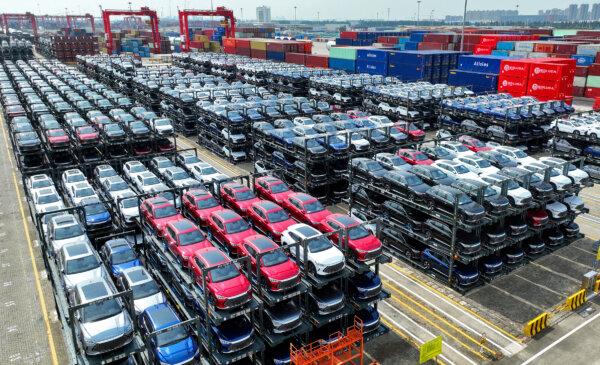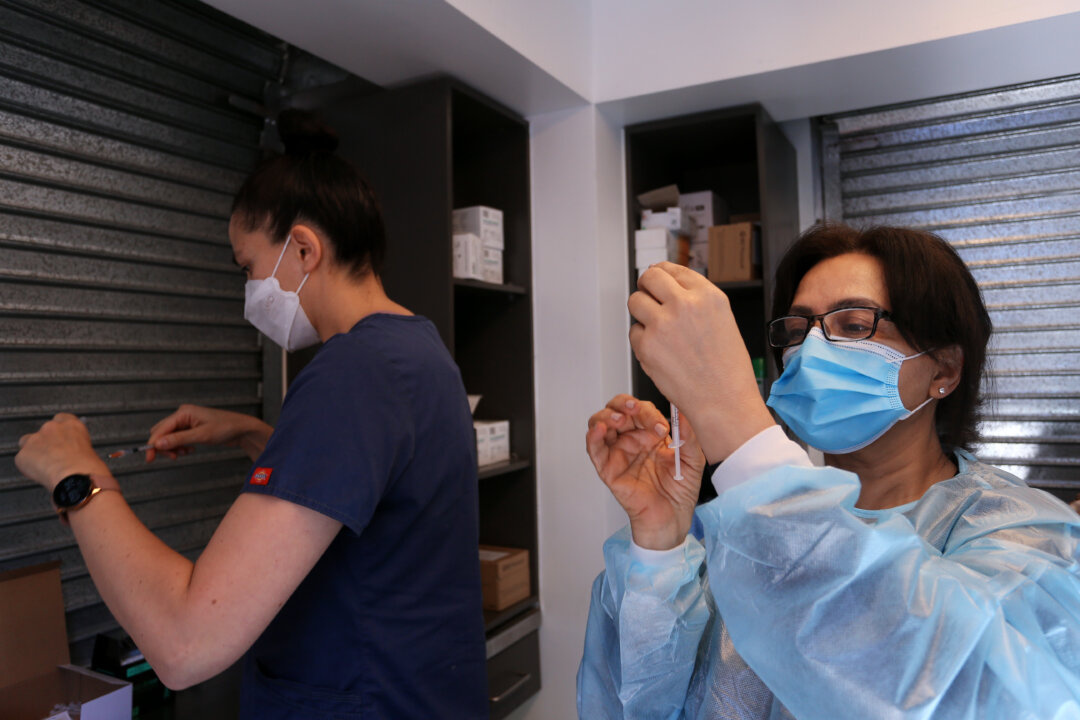Experts believe structural problem underlines the trade dispute between China and EU.
European Commission President Ursula von der Leyen said in Berlin on May 8 that Europe needs to prevent China from flooding the EU market with its heavily subsidized electric vehicles.
“Fair competition is good. What we don’t like is when China floods our market with massively subsidized electric cars. And we have to tackle this, we have to protect our industry,” she said at the Christian Democrats’ party convention.
Ms. von der Leyen also urged EU countries to unite in response to the economic threats from outside, calling on all EU finance ministers to finally pull together to complete a long-discussed capital markets union.
“A better integrated capital markets union could make it possible to invest up to 470 billion euros ($505.25 billion) more per year in our start-ups and SMEs,” she said.
The European Commission, which oversees trade policy in the 27-nation European Union, launched an investigation in October 2023 into whether China made EVs were receiving mass subsidies from the Chinese communist regime to determine whether to impose punitive tariffs on them.
The investigation is due to end in November this year, but the EU may impose provisional anti-subsidy duties in July. Brussels should publish a summary of the proposed temporary tariffs by June 5 and start imposing them by July 4.
On May 6, after talks with the ruling Chinese Communist Party (CCP) leader Xi Jinping in Paris, Ms. von der Leyen and French President Emmanuel Macron said that if the Chinese regime fails to offer fair market access to its market for European companies, the EU is ready to use all available trade tools to defend its economy.
In her press statement, Ms. von der Leyen urged China to address “structural overcapacity” because the CCP “continues to massively support its manufacturing sector” at a time of weak domestic demand, and “the world cannot absorb China’s surplus production.”
 BYD electric cars waiting to be loaded on a ship are stacked at the international container terminal of Taicang Port at Suzhou Port, in China's eastern Jiangsu Province, on Sept. 11, 2023. (AFP via Getty Images)
BYD electric cars waiting to be loaded on a ship are stacked at the international container terminal of Taicang Port at Suzhou Port, in China's eastern Jiangsu Province, on Sept. 11, 2023. (AFP via Getty Images)Sun Guoxiang, an associate professor at the University of Nanhua in Taiwan, told The Epoch Times that Ms. von der Leyen’s statement implies that Europe did not create this overcapacity problem; rather, Europe has to bear the consequences of China’s surplus.
“It seems that the EU is preparing all tools available [to counter China’s dumping]. Germany, as the leading country in the EU, must demonstrate determination. Ms. von der Leyen represents the position of the entire EU,” Mr. Sun said.
“Ms. von der Leyen’s perspective is that the EU must unite and talk to China with one voice. In fact, we can see that Ms. von der Leyen is also working hard for the EU and the United States to have the same voice to deal with China, which is, in fact, more critical,” he added.
Speaking to The Epoch Times, Chung Chih-tung, an assistant research fellow at Taiwan’s Institute for National Defense and Security Research, believes “the EU now takes a very serious view of the threat that Chinese electric vehicles pose to the European economy and industry, mainly caused by China’s subsidy policy. In Europe, these automobile industries are composed of private enterprises that do not have these kinds of state subsidies.”
Structural Problem
Mr. Chung said, “At present, Europe sees China as a partner for cooperation, but also as an economic competitor and systemic rival. If such positioning continue to develop in a negative direction, it will also affect the economic relationship between the EU and China. Then, the EU will take more severe countermeasures against China’s unfair competition in the electric vehicle and automobile industries.”
“The main thing to watch in the future is the result of the EU’s current investigation into China’s state subsidies. It may lead the EU to impose punitive tariffs on China’s electric vehicle imports, and even involve extra tariffs imposed on the products produced in China or imported from China by non-Chinese automakers,” he said.
 People look at cars on the Mercedes-Benz stand on the opening day of the Shanghai Auto Show on April 16, 2019. (Greg Baker/AFP via Getty Images)
People look at cars on the Mercedes-Benz stand on the opening day of the Shanghai Auto Show on April 16, 2019. (Greg Baker/AFP via Getty Images)Mr. Chung added that EU leaders’ constant emphasis on China’s overcapacity and dumping its EVs in Europe shows their deeper concern over China’s structural problem. “In terms of economy and trade, Europe is now adopting a de-risking policy and reducing dependence on China based on their distrust of the Chinese communist regime. The EU defines China as a systemic rival, which means there is a relationship of opposition and competition in politics and economy, as well as conflicts between ideologies and values. As long as this structural problem is not resolved, the disagreements in economy and trade between China and the EU will continue to escalate.”
Meanwhile, South Korea’s Ministry of Trade, Industry, and Energy said on May 8 that it would provide 9.7 trillion won ($7.14 billion) in state financing to the local electric vehicle battery industry this year to establish its own supply chain, moving away from China and aligning more with U.S. trade guidelines.
Luo Ya and Reuters contributed to this report.














 English (US) ·
English (US) ·  Turkish (TR) ·
Turkish (TR) ·